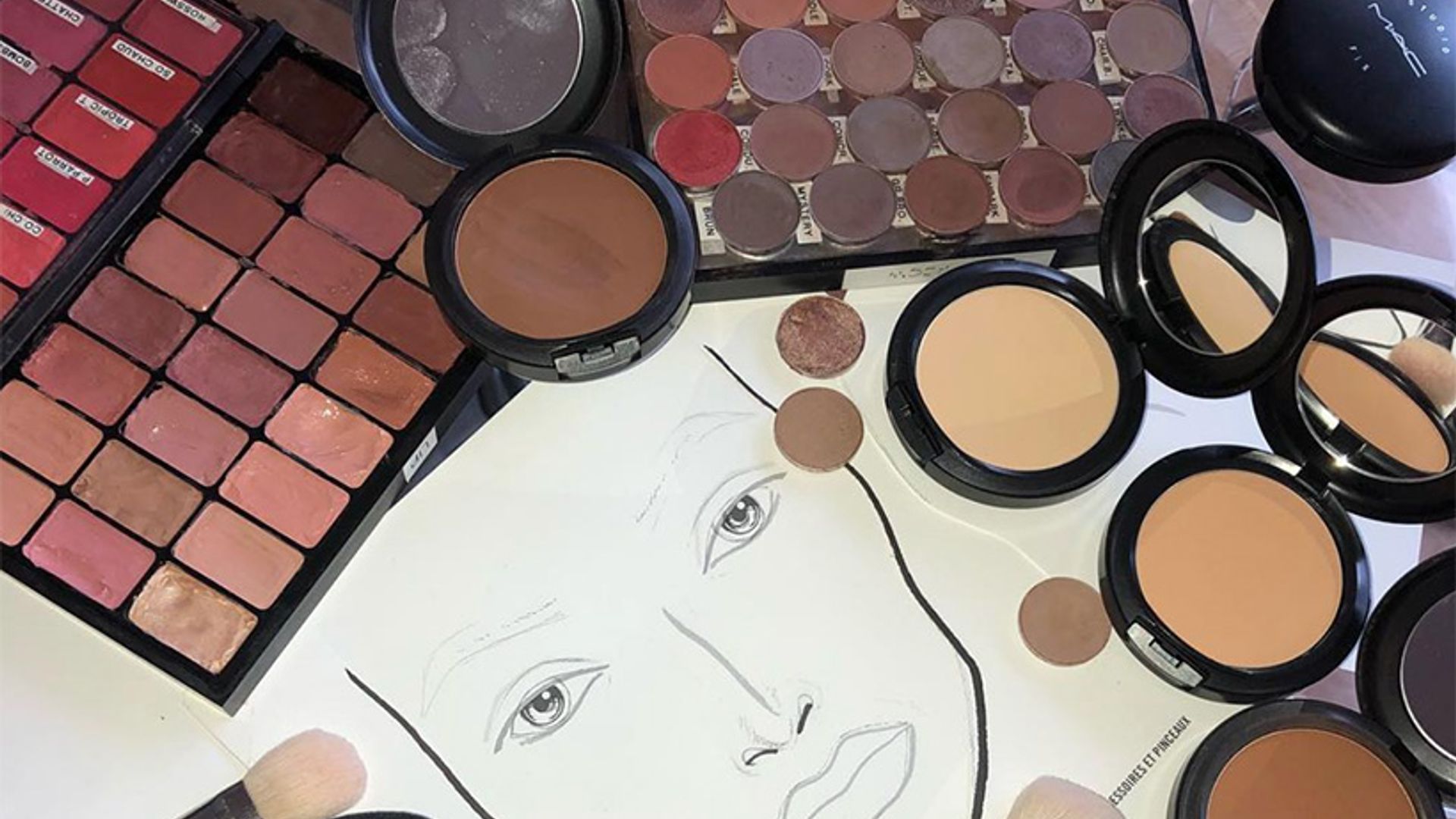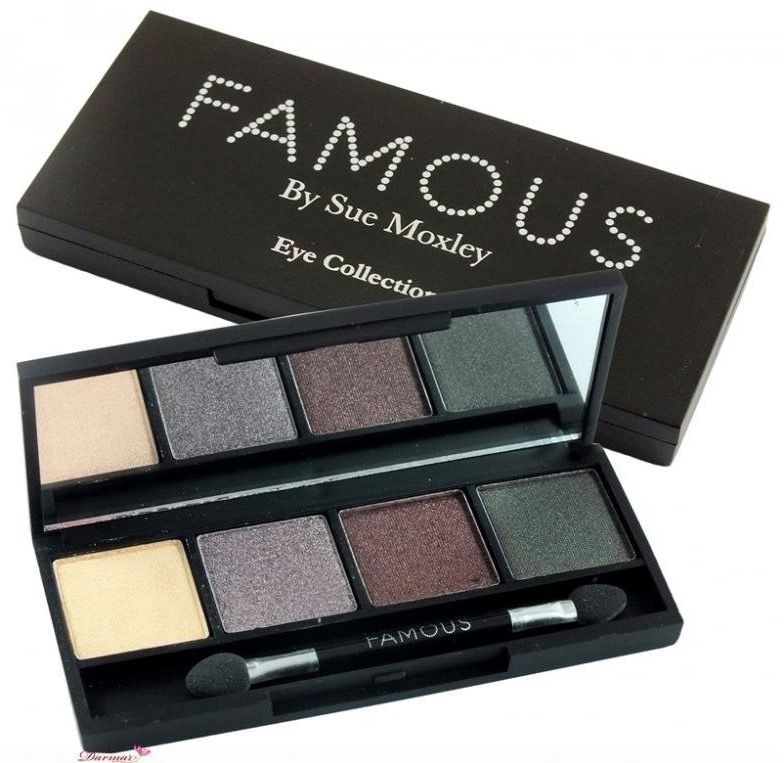A Look Back: Discontinued Makeup Brands That Left Their Mark
Related Articles: A Look Back: Discontinued Makeup Brands That Left Their Mark
Introduction
In this auspicious occasion, we are delighted to delve into the intriguing topic related to A Look Back: Discontinued Makeup Brands That Left Their Mark. Let’s weave interesting information and offer fresh perspectives to the readers.
Table of Content
A Look Back: Discontinued Makeup Brands That Left Their Mark

The world of cosmetics is a dynamic landscape, constantly evolving with new trends, innovations, and, inevitably, some casualties along the way. Discontinued makeup brands, while no longer available for purchase, offer a fascinating glimpse into the history of beauty and the ever-changing preferences of consumers.
This exploration delves into the reasons behind the discontinuation of various makeup brands, highlighting the impact they had on the industry and the nostalgia they evoke in those who remember them.
Reasons for Discontinuation
Several factors contribute to the demise of makeup brands, each revealing insights into the complex world of consumer demand and market dynamics:
- Shifting Consumer Preferences: The beauty industry is driven by trends, and what’s popular today might be passé tomorrow. Brands that fail to adapt to evolving consumer desires, whether in terms of product formulations, packaging, or marketing, often struggle to remain relevant.
- Market Saturation: The cosmetics market is fiercely competitive, with numerous brands vying for consumer attention. When a brand’s offerings become overshadowed by newer, more innovative competitors, it can struggle to stand out and maintain its market share.
- Financial Challenges: Economic factors, such as rising production costs, declining sales, or poor financial management, can significantly impact a brand’s viability. In such cases, discontinuation may be a necessary decision to prevent further financial losses.
- Mergers and Acquisitions: The beauty industry frequently sees mergers and acquisitions, where larger companies acquire smaller brands. In some instances, acquired brands may be discontinued to streamline operations or eliminate competing products within the parent company’s portfolio.
- Product Recall and Legal Issues: In rare cases, product recalls due to safety concerns or legal issues can lead to a brand’s discontinuation, especially if the negative publicity significantly damages its reputation and consumer trust.
The Legacy of Discontinued Brands
While no longer available on store shelves, discontinued makeup brands continue to hold a special place in the hearts of many. They serve as a reminder of past beauty trends and the evolution of the cosmetics industry.
- Nostalgia and Sentimentality: For those who remember these brands, their discontinuation can evoke a sense of nostalgia and sentimentality. The products, packaging, and marketing campaigns often represent a particular era and evoke memories of personal experiences.
- Historical Significance: Discontinued brands contribute to the broader history of beauty and fashion. They offer a snapshot of the prevailing beauty ideals, technological advancements, and cultural influences of their time.
- Collector’s Items: Some discontinued makeup products become highly sought-after collector’s items, especially those with unique packaging, limited-edition releases, or historical significance. Their rarity and association with a specific era can make them valuable to collectors.
Discontinued Makeup Brands: A Selection
This section explores a selection of notable discontinued makeup brands, highlighting their unique contributions to the beauty industry and the reasons behind their demise:
1. Prescriptives: This brand, known for its personalized approach to makeup, revolutionized the industry with its unique "color matching" system. Prescriptives offered a wide range of customizable foundation shades and products designed to cater to individual skin tones and preferences. However, the brand eventually faced challenges in adapting to evolving consumer demands and market trends, ultimately leading to its discontinuation in 2016.
2. Max Factor: A legendary name in cosmetics, Max Factor was a pioneer in film makeup and the development of groundbreaking products like pancake makeup and false eyelashes. The brand’s history is intertwined with the golden age of Hollywood, and its products were synonymous with glamour and beauty. Max Factor was acquired by Procter & Gamble in 1973, and while it continued to operate under the parent company, its original brand identity gradually faded, leading to its eventual discontinuation in many markets.
3. Cover Girl: A household name for decades, Cover Girl was known for its accessible and affordable makeup products. The brand’s iconic advertising campaigns featuring celebrities and models made it a cultural phenomenon. However, Cover Girl faced increasing competition from newer brands and struggled to maintain its relevance among younger consumers. In 2021, Cover Girl was acquired by a private equity firm, and its future remains uncertain.
4. Jane Cosmetics: Known for its innovative and high-quality makeup products, Jane Cosmetics was a favorite among makeup enthusiasts. The brand’s focus on natural ingredients and cruelty-free practices resonated with a growing segment of consumers. However, Jane Cosmetics eventually faced financial challenges and was discontinued in 2017.
5. Anna Sui Cosmetics: This whimsical and enchanting brand was known for its playful packaging, vibrant colors, and unique product formulations. Anna Sui Cosmetics appealed to a niche market of consumers who appreciated its artistic and imaginative approach to beauty. However, the brand struggled to expand its reach and maintain its profitability, leading to its discontinuation in several markets.
6. Bourjois: This French cosmetics brand, with a history dating back to the 19th century, was renowned for its innovative and affordable makeup products. Bourjois was particularly known for its iconic "Little Round Pot" blush, which became a cult classic. The brand was acquired by Coty in 2003, and while it continues to operate in some markets, its presence has diminished in others.
7. Revlon: A household name for decades, Revlon was a pioneer in the mass-market cosmetics industry, known for its affordable and accessible products. The brand’s iconic advertising campaigns featuring celebrities and models made it a cultural phenomenon. However, Revlon faced increasing competition from newer brands and struggled to maintain its relevance among younger consumers. In 2023, Revlon filed for bankruptcy, marking the end of an era for a brand that once defined American beauty.
FAQs about Discontinued Makeup Brands
1. Why are makeup brands discontinued?
Makeup brands can be discontinued for a variety of reasons, including shifting consumer preferences, market saturation, financial challenges, mergers and acquisitions, and product recalls or legal issues.
2. What happens to discontinued makeup products?
Discontinued makeup products are typically no longer available for purchase, although some may be found on online marketplaces or through collectors.
3. Can I still use discontinued makeup products?
While discontinued makeup products may still be usable, it’s essential to consider their expiration dates and the potential for product degradation.
4. Are discontinued makeup brands worth collecting?
The value of discontinued makeup brands can vary depending on their rarity, historical significance, and condition. Some products may become highly sought-after collector’s items.
5. What are some of the most iconic discontinued makeup brands?
Some of the most iconic discontinued makeup brands include Prescriptives, Max Factor, Cover Girl, Jane Cosmetics, Anna Sui Cosmetics, Bourjois, and Revlon.
Tips for Finding Discontinued Makeup Products
- Online Marketplaces: Platforms like eBay, Etsy, and Facebook Marketplace can be good sources for finding discontinued makeup products.
- Collector’s Groups: Joining online communities and forums dedicated to makeup collecting can provide access to rare and discontinued products.
- Vintage Shops: Brick-and-mortar vintage shops and antique stores might have discontinued makeup products in their inventory.
- Garage Sales and Estate Sales: These events can sometimes offer unexpected finds, including discontinued makeup products.
Conclusion
Discontinued makeup brands represent a fascinating chapter in the history of beauty and consumer culture. While their products are no longer available for purchase, their legacy continues to inspire and intrigue. They serve as a reminder of the ever-changing nature of the cosmetics industry, the power of nostalgia, and the enduring impact of brands that have left their mark on our collective memory.








Closure
Thus, we hope this article has provided valuable insights into A Look Back: Discontinued Makeup Brands That Left Their Mark. We thank you for taking the time to read this article. See you in our next article!